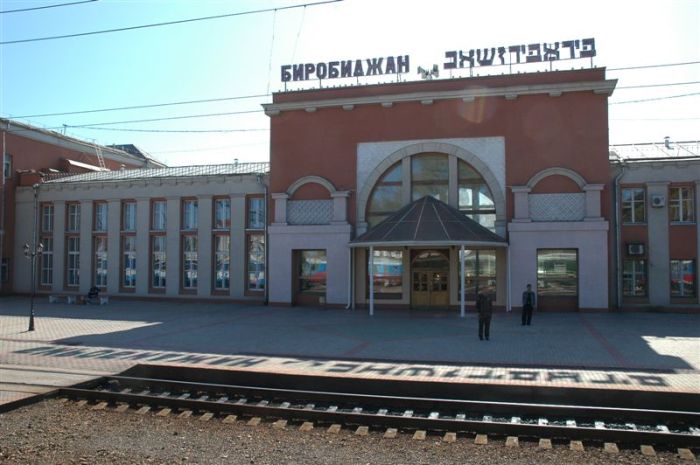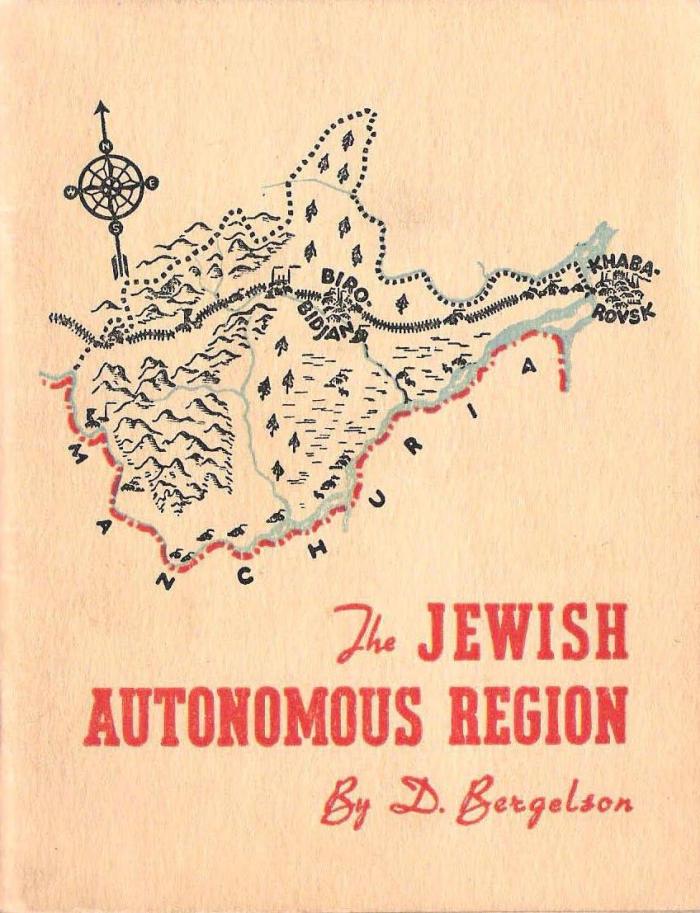“Zionism” is a political movement that calls for the establishment of a Jewish state, manifested mostly in support for the current state of Israel, established in 1948. Zionism, in claiming to establish a Jewish state in the lands of Palestine, in practice is advocating the expulsion of the Arab peoples from Palestine, where the Jews constitute a minority. Today, the true face of Zionism and the state of Israel has been exposed; Israel has embarked on a campaign of genocidal and imperialistic ambitions to annex more and more land from the Palestinians through colonialist tactics. Because of the reactionary role played by Israel on the world stage, many wonder how the Soviet Union could have supported such an entity at one time.
The issue of the Jewish Question has been the subject of much debate, including among Marxist-Leninists, since the state of Israel controversially owes part of its existence to the Soviet Union. Stalin and many of the Bolsheviks viewed anti-Semitism as a form of reactionary chauvinism from the beginning of their leadership. The role of the Soviet Union in protecting the lives and rights of Jewish people during World War II and beforehand was an important part of history, and should be noted along with a criticism of Zionism.
In the socialist Soviet Union, Jews were invited to participate in society. This trait can be observed not only through the Russian Revolution, but through Soviet history, where Jews managed to gain high positions in the Party leadership. In the post-revolutionary Soviet Republics, the roots of racism ceased in relation to the new developing proletarian culture. The working class witnessed a great awakening of culture, and this was made true for numerous groups. One such group was the Jewish people, who were now free to make use of literary publications, education, schooling and the arts.
In Siberia, specifically the Khabarovsk territory, a Soviet Jewish homeland began in 1928. It grew to more than thirty-thousand kilometers by 1934, and within a brief period of time, more than ten thousand Jewish families moved and formed communities. They were grateful to the Soviets. In this sense, it was the Soviet Union who had truly created the new Jewish homeland. It was part of J.V. Stalin’s policy regarding nationalities within the U.S.S.R., which allowed for autonomous territories to pursue their culture, in this case Yiddish culture, within a socialist framework.

The Soviet Jews of this region had the right to vote, the right participate in the Soviet court system as well as the militia and the right to receive education and public services. Representatives of their territory were regularly sent throughout the Soviet Union to voice their political concerns freely, and official Soviet representatives were sent there to assess the wants and needs of Jewish workers. Despite the good conditions the Jewish people of this territory had, many still wished to integrate with the new culture of the main cities and industrialized areas of the Soviet Union. Because the revolution had emancipated the peasantry and the working class, many Soviet citizens were able to find successful careers and build homes within the newly constructed cities; this included the Jewish people, who were no longer segregated from the schools or labor centers. As a result, the Soviet Jews became one of the most major nationalities in cultural hubs such as Moscow. Because of the positive changes of social-economic conditions, the heightened cultural awareness and the newly established rights, many Jews integrated into Soviet society.

The Bolshevik government remembered very well the anti-Semitic pogroms organized by the former Czar Nicholas the II in the old Russian Empire, and knew full well the anti-Semitic feelings that had plagued Europe for many years, including those among the Russian peoples.
From the beginning, anti-Semitism was punishable in the Russian socialist republic and later the Soviet Union, sometimes by the death penalty, as clearly stated in this speech by V.I. Lenin:
J.V. Stalin also stated this in regards to anti-Semitism:
National and racial chauvinism is a vestige of the misanthropic customs characteristic of the period of cannibalism. Anti-semitism, as an extreme form of racial chauvinism, is the most dangerous vestige of cannibalism.
Anti-semitism is of advantage to the exploiters as a lightning conductor that deflects the blows aimed by the working people at capitalism. Anti-semitism is dangerous for the working people as being a false path that leads them off the right road and lands them in the jungle. Hence Communists, as consistent internationalists, cannot but be irreconcilable, sworn enemies of anti-semitism.
In the U.S.S.R. anti-semitism is punishable with the utmost severity of the law as a phenomenon deeply hostile to the Soviet system. Under U.S.S.R. law active anti-semites are liable to the death penalty.
This trend in Soviet history was remarkable, and would continue as state policy. During the leadership of Lenin and Stalin, any acts of anti-Jewish aggression were soundly punished. Defense of the rights of the Jewish people was one of the main reasons that the Soviet Union approved the establishment of the state of Israel initially. Most important, however, was the geopolitical context of the time. When Palestine was under British occupation as the “British Mandate of Palestine,” the existence of a Jewish state was considered to be a threat to British imperialism. The Grand Mufti of Jerusalem, the leading Muslim cleric, was appointed by the British Mandate authorities, and many of the Arab sheikhs were pro-British.

During the 1940’s, the Grand Mufti of Jerusalem, Mohammad Amin al-Husayni, became a collaborator with the Nazis and the Italians, meeting with Adolf Hitler and Benito Mussolini in 1941. During the entire length of World War II Amin al-Husayni would be actively involved in recruitment of units for Nazi Germany, many serving in the SS. Radio stations under his control broadcasted propaganda to recruit Muslim SS units and to garner Arab support for the Axis powers.

The Zionist movement, on the other hand, was waging an armed struggle against the British Empire occupation in Palestine and was looking for friends on the international scene. The Soviet Union provided support in this context to the Jewish movement. Because of this context, with the views of the Soviet Union towards combating British imperialism as well as fascist collaborator clerics, they initially supported the creation of a Jewish state. They wished for the rights of self-determination for both the Jewish people and the Arab people in that region. However, this does not mean that the Soviets were supporters of Zionism. In fact, the Comintern and the Soviets had repeatedly identified Zionism as a reactionary bourgeois nationalist movement.
V.I. Lenin stated that the primary supporters of Zionism belonged to the Jewish bourgeoisie or their puppets. He also rightly pointed out that it was bourgeois culture and Zionism, combining together, that was desperately attempting to weaken the working class movement as a pseudo-progressive trend of thought. The position taken up by Lenin and the Bolsheviks was a counter-argument against the claims from the Zionists within the General Jewish Labour Bund (a Jewish union of sorts). Some of the members of the General Jewish Labour Bund eventually joined the Bolsheviks, leaving the Bund to dissolve in the early 1920’s. The remnants of the Bund claimed that their members were forced to join and denounced the proletarian government as anti-Semitic. The Bolsheviks suppressed the Zionists, and many of the Zionists in turn suppressed Jews who did not agree with their radical views, such as the Jewish section of the Communist Party.

Soviet Jews were generally granted freedom to express their views in the press, but Zionists were denied such rights; Zionism was not encouraged nor endorsed by majority of the Party leadership. Having its roots in the late nineteenth century, Zionism was something of which Marxism was well aware. Not only the Soviets, but many Marxists worldwide criticized Zionism for its anti-socialist, reactionary tendencies. Zionism is an ideology dedicated to preventing the Jewish working people from identifying with the rest of the working class, leading to stratification grounded solely in principles of bourgeois rights. Zionism asserts itself as a pseudo-mystical form of philosophy, embedded with nationalist, racist tendencies, creating such farces as the idea that those not of Jewish faith cannot belong to their nation. Attempts to argue against Zionism often lead to circular reasoning on the part of the Zionist, who rabidly claims that anti-Zionism equates to anti-Semitism. However, this is not true, as there are many Jews who view Zionism as a detriment to the Jewish people and the world.
Not long after the establishment of the state of Israel, the Soviet Union changed its position when Israel started to gravitate toward the Western powers, working in tandem with American imperialism in particular. J.V. Stalin himself began to see Zionism as a serious threat to the world’s working people and to the Soviet Union. From the late 1940’s until his death, Stalin waged a principled struggle against Zionism as a reactionary movement. This position would soon prove to be the correct one, as beginning in the 1940’s after WWII Israel began to aggressively seize lands held by Palestinians, leading up to the 1947 partition by the United Nations. Middle Eastern countries such as Lebanon and Egypt were driven to war with Israel, which further resulted in the expulsion of more than 700,000 Palestinians from the territory as Israel began to forcefully establish its borders.
Between 1948 and 1967, Palestine lost a massive amount of land and many of its citizens were murdered. Ever since then, Israel has continued to use violence against Palestinian people. By the year 2000, Palestine would be reduced to just the Gaza Strip and the West Bank. To this day, Palestinians struggle against a state that has proven that it will stop at nothing to advance its colonialist and hegemonic ends.

Children, women and the elderly are all potential targets for Israeli violence. Blocking aid to places such as Gaza is an especially common tactic of Israeli enforcement. Privately-owned media companies in the US report the Israeli-Palestinian conflict in favor of Israel and of Zionism, failing to mention the entire truth of the situation. Israel continues to violate international law in what can only be described as ethnic cleansing, yet the US treats Israel with the utmost respect no matter what they have done. The support of the US leads Israeli troops to target civilians and force them out of their houses and land. Aside from the violence and repression used by Israel, Palestine also faces dire social and economic conditions. Nearly half of Palestine is unemployed. Many people are without running water and electricity; the people are suffering from diseases such as malnutrition because of these conditions and because Israel consistently blocks aid.
When one examines the contemporary Israeli settler state, and the claims that those who oppose it are anti-Semitic by default, the contradictory reality of their own inherent anti-Semitism becomes clear. Unlike the Soviet Union, who struggled against the forces of anti-Semitism and the reactionary bile of chauvinism within their own borders, Israel responds to a history of hatred for Jews with a national-chauvinism of their own making, making Arabs and non-Jews their enemy and the target of imperialist violence.
Their response to reactionary chauvinism is to make it their guiding star, their justification for war crime after war crime, and in this, the Israeli settler state works to alienate Israeli Jewish workers from the rest of the world’s working peoples. For this reason, it is necessary to understand Zionism in its ideological and historical contexts, and how it is a detriment to the working class and is in itself, anti-Jewish. For the solidarity and advancement of all workers to be realized, the deadly poison of Zionism and its imperialist ambitions need to be challenged and defeated by all workers.
Categories: Colonialism, History, Imperialism, Imperialist War, International, Israel, Palestine, Racist Oppression, Revolutionary History, Russia, Science, Soviet Union (USSR), Theory, Workers Struggle, World History, Zionism








Tell us Your Thoughts